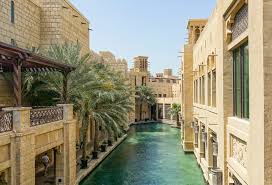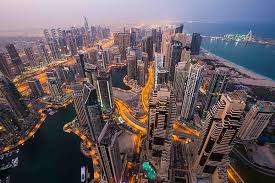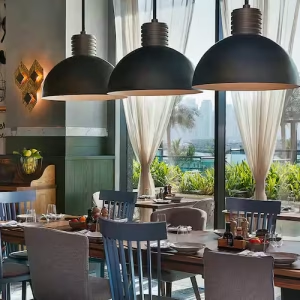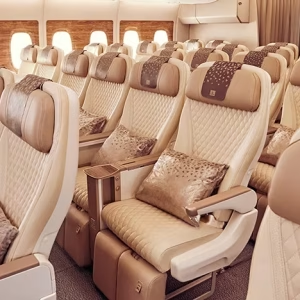A City of Dreams with a Price Tag
Dubai is often painted as a glittering paradise of skyscrapers, luxury shopping, and endless sunshine. But while the city offers unmatched opportunities and a vibrant lifestyle, the Costs to Live in Dubai can be a different story depending on how you choose to live. For those considering a move or simply curious about what it takes to maintain a comfortable life, understanding the real costs is essential.
Housing: The Biggest Slice of the Budget
For most residents, accommodation is the largest monthly expense. Dubai offers everything from shared apartments in older neighborhoods to high-rise luxury apartments with panoramic views of the skyline or waterfront.
If you are willing to live a little away from the city center, rents can be more affordable. Popular suburban areas like Jumeirah Village Circle or Al Barsha can offer relatively lower rents compared to Downtown Dubai or Dubai Marina. However, if location and amenities matter most, prepare for a significant monthly outlay—especially in premium areas.

Utilities and Internet: The Hidden Add-Ons
After rent, utilities can add a notable amount to your monthly budget. Air conditioning, a necessity for most of the year, can significantly increase your electricity bill, especially during peak summer months. Water and internet charges vary but are generally manageable, though faster internet packages and premium services will push costs higher.
Groceries and Dining Out: A Matter of Lifestyle
Grocery prices in Dubai depend on whether you shop at budget-friendly hypermarkets or opt for premium imported goods. Local produce and regional brands tend to be cheaper, while imported items, especially from Europe or North America, can cost considerably more.
Dining out is another area where costs can vary wildly. Affordable local eateries, food courts, and street food stalls can help you save, while fine dining at Dubai’s world-class restaurants can easily add up. Many residents balance both, enjoying budget meals during the week and splurging occasionally.

Transportation: Car, Metro, or Ride-Hailing?
Dubai’s metro system is modern, clean, and affordable, covering most major business and residential areas. If you live near a metro station, it’s one of the most cost-effective ways to get around. Taxis and ride-hailing services like Uber and Careem are widely available but can be more expensive if used daily.
Owning a car gives more freedom but comes with expenses such as fuel, insurance, registration, and maintenance. While fuel is cheaper than in many countries, parking costs in certain areas and toll charges like Salik should also be considered.
Education: A Significant Investment for Families
For families with children, schooling is one of the biggest expenses in Dubai. The city has a variety of private schools following different international curricula—British, American, Indian, and IB—each with its own fee range. Top-tier schools with advanced facilities and extracurricular options can be costly, making it essential for families to budget carefully.
Healthcare: Quality Comes at a Price
Healthcare in Dubai is high-quality, but it comes with a cost. While employers often provide health insurance, coverage levels vary. Out-of-pocket expenses for certain treatments, specialist visits, or medications can still be significant. Choosing a comprehensive insurance plan can help protect against unexpected bills.
Entertainment and Lifestyle: The Fun Factor
Dubai’s entertainment options are endless—from desert safaris and waterparks to concerts and upscale shopping malls. How much you spend depends entirely on your lifestyle. Fitness memberships, weekend getaways, or regular nights out can quickly add to your monthly expenses. Many residents find balance by mixing free or low-cost activities, such as beach days and public events, with occasional indulgences.
The Monthly Budget Breakdown
While costs vary widely depending on personal choices, here’s a rough idea of average monthly expenses for a single person:
- Rent: High for central locations, more affordable on the outskirts
- Utilities: Can spike in summer months due to air conditioning
- Groceries: Moderate if sticking to local brands, higher for imports
- Transportation: Low with public transit, higher with car ownership
- Entertainment: Highly flexible depending on activities
For families, housing, education, and healthcare will take up the largest portions of the budget.

Tips to Make Living in Dubai More Affordable
Living in Dubai doesn’t have to mean overspending. With some smart planning, it’s possible to enjoy the city while keeping finances under control:
- Choose housing in well-connected but less central neighborhoods
- Take advantage of public transportation where possible
- Look for supermarket promotions and buy local brands
- Use loyalty cards and discount apps for dining and entertainment
- Plan larger purchases during Dubai’s shopping festivals
Final Thoughts: Balancing Lifestyle and Budget
Dubai offers a quality of life that is hard to match, but it comes at a cost. Whether you thrive here depends on how well you balance your lifestyle with your income. The city’s diversity means there is something for every budget—you just need to be mindful of where your money goes.
Living in Dubai can be as affordable or as extravagant as you make it. The key is to be informed, plan ahead, and enjoy everything this remarkable city has to offer without losing sight of your financial comfort.
Do follow UAE Stories on Instagram













